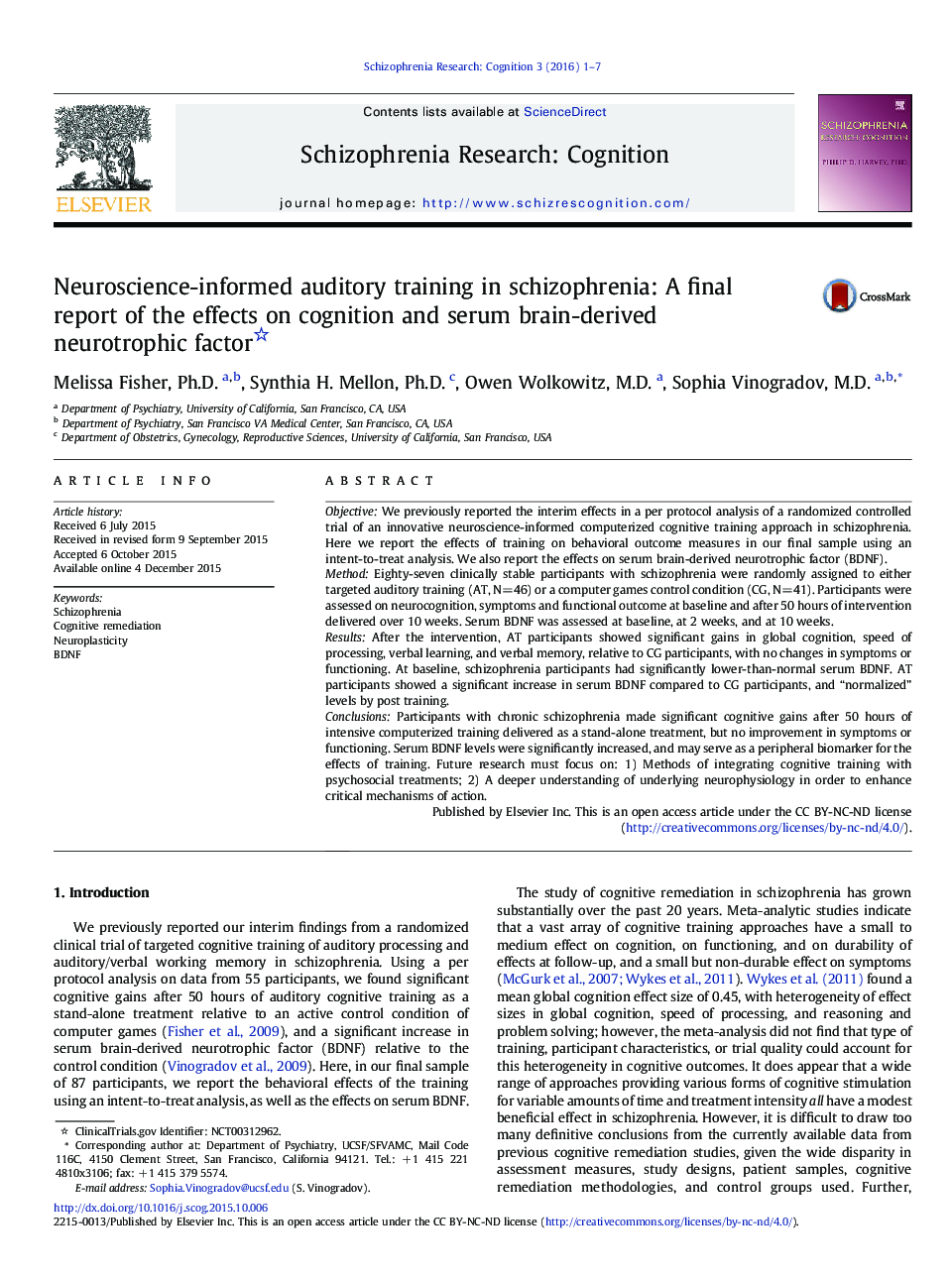| کد مقاله | کد نشریه | سال انتشار | مقاله انگلیسی | نسخه تمام متن |
|---|---|---|---|---|
| 4191742 | 1608484 | 2016 | 7 صفحه PDF | دانلود رایگان |
ObjectiveWe previously reported the interim effects in a per protocol analysis of a randomized controlled trial of an innovative neuroscience-informed computerized cognitive training approach in schizophrenia. Here we report the effects of training on behavioral outcome measures in our final sample using an intent-to-treat analysis. We also report the effects on serum brain-derived neurotrophic factor (BDNF).MethodEighty-seven clinically stable participants with schizophrenia were randomly assigned to either targeted auditory training (AT, N=46) or a computer games control condition (CG, N=41). Participants were assessed on neurocognition, symptoms and functional outcome at baseline and after 50 hours of intervention delivered over 10 weeks. Serum BDNF was assessed at baseline, at 2 weeks, and at 10 weeks.ResultsAfter the intervention, AT participants showed significant gains in global cognition, speed of processing, verbal learning, and verbal memory, relative to CG participants, with no changes in symptoms or functioning. At baseline, schizophrenia participants had significantly lower-than-normal serum BDNF. AT participants showed a significant increase in serum BDNF compared to CG participants, and “normalized” levels by post training.ConclusionsParticipants with chronic schizophrenia made significant cognitive gains after 50 hours of intensive computerized training delivered as a stand-alone treatment, but no improvement in symptoms or functioning. Serum BDNF levels were significantly increased, and may serve as a peripheral biomarker for the effects of training. Future research must focus on: 1) Methods of integrating cognitive training with psychosocial treatments; 2) A deeper understanding of underlying neurophysiology in order to enhance critical mechanisms of action.
Journal: Schizophrenia Research: Cognition - Volume 3, March 2016, Pages 1–7
